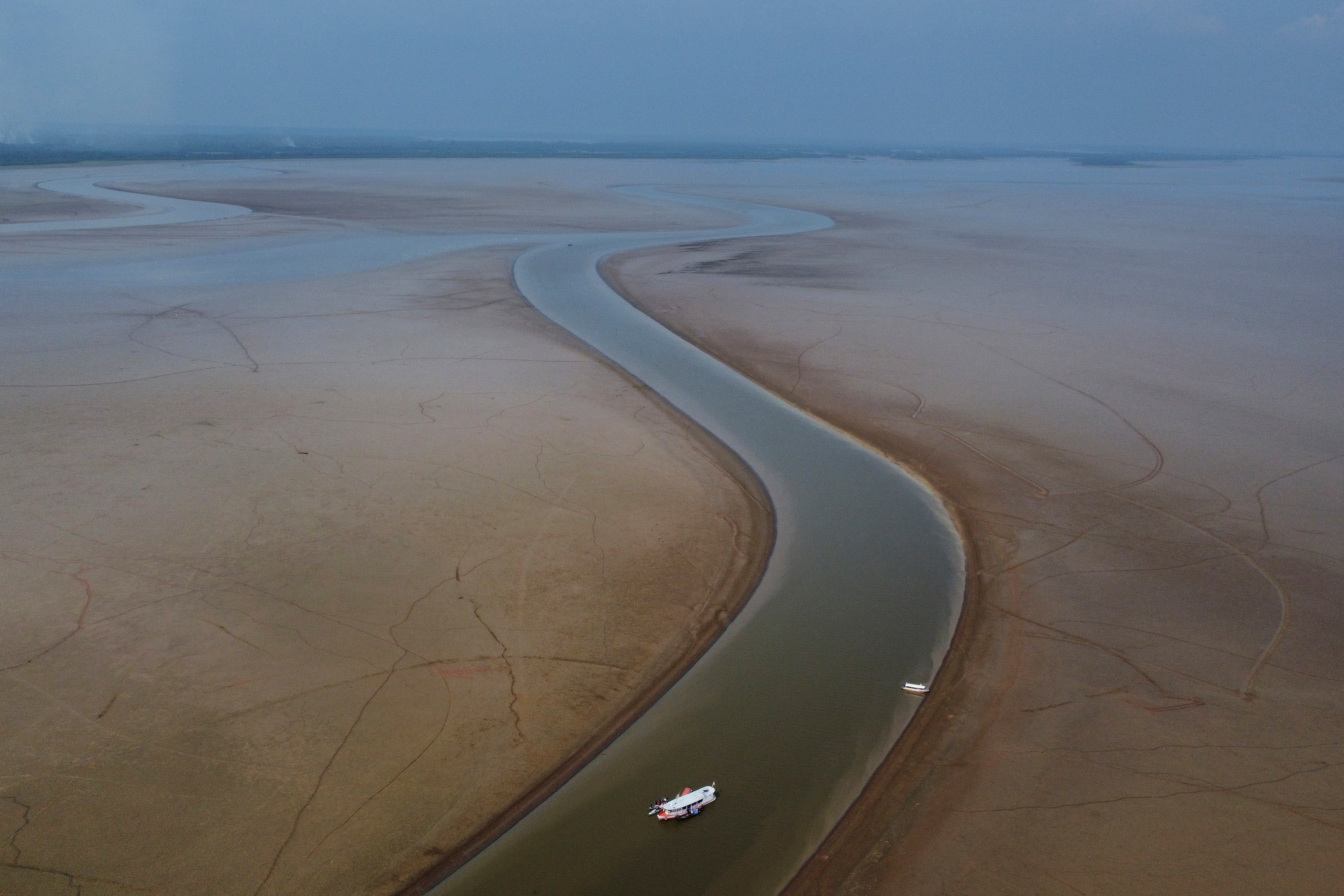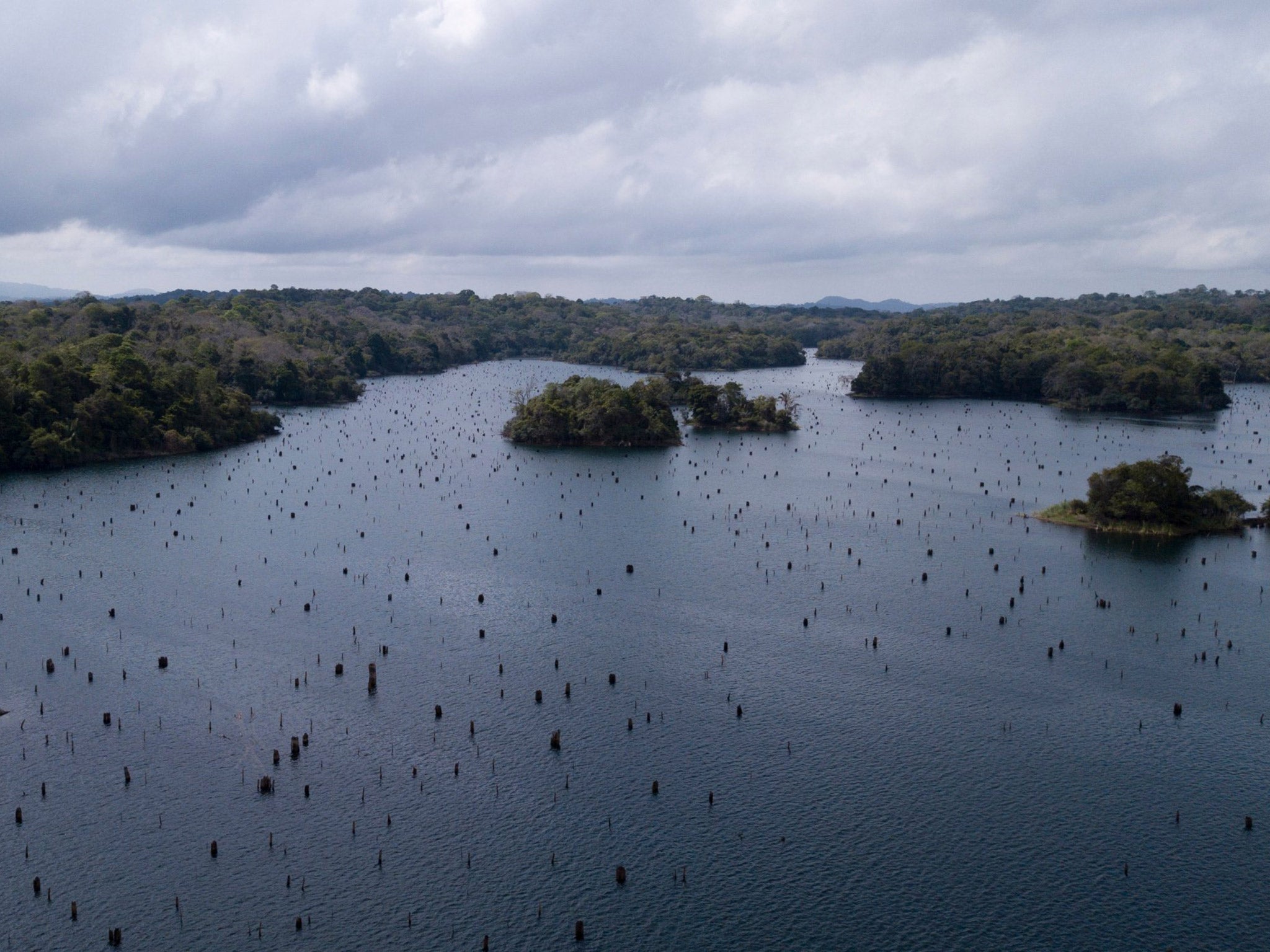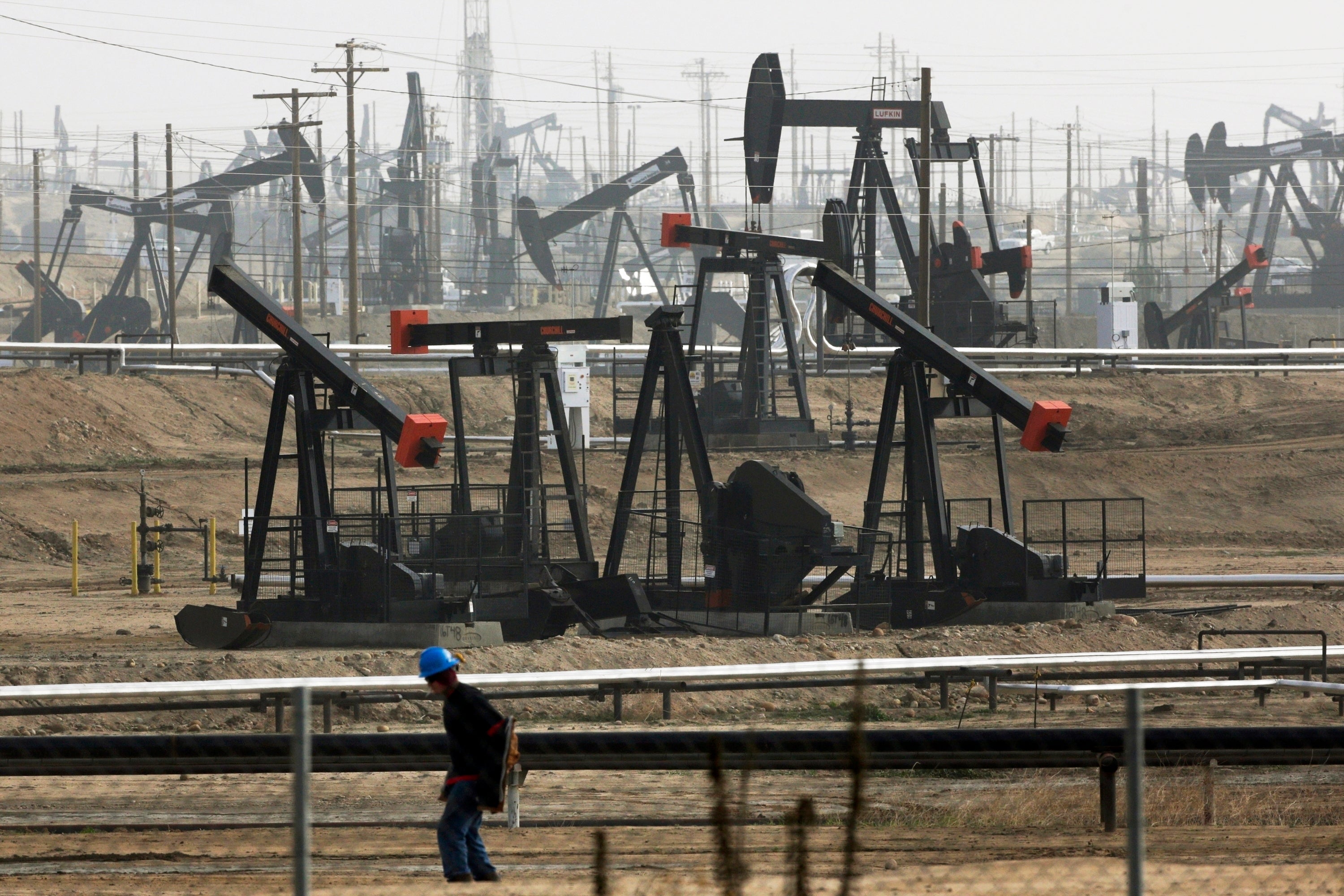Climate scientists did not scaremonger. If anything, they undersold the scale of the crisis
The UN warns there has been a ‘disturbing acceleration’ in the number, speed and scale of temperature records tumbling this year. As Cop28 prepares to open its doors in Dubai, Roger Harrabin says we should begin imagining a world where temperatures have risen by 3C... because that is where we are heading


As world leaders prepare for the annual UN climate talks – starting in Dubai on Thursday – I’m inviting you on a voyage of meteorological imagination, with a little help from the pop star Taylor Swift, the Panama Canal and the Antarctic.
Swift recently cancelled a concert in Rio after a young woman died at one of her gigs as the city suffered from extreme heat. Rio has wilted as the heat index measuring the combination of temperature and humidity reached a debilitating 58.5C. Further north, the Amazon has shrunk to a record level. The extremes have happened with a global temperature rise of an apparently innocuous 1.2C above pre-industrial levels.
Meanwhile, drought has starved the Panama Canal, forcing a major cut in shipping. It has squeezed other great waterways like the Rhine, Mississippi and the Suez Canal. Again, with a temperature rise of just 1.2C. In Antarctica, researchers said they were “scared” by temperatures reaching 4.8C warmer than the long-term average, propelled upward by that global rise of 1.2C.
Many scientists are now publicly admitting they have been shocked by the response of the planet to the increase in emissions. The UN stated: “There has been a disturbing acceleration in the number, speed and scale of records” that have fallen this year. Scientists previously accused by climate deniers of scaremongering have, it seems, invertedly undersold the scale of the crisis.
Now, +1.2C doesn’t sound much, but if it can provoke these events, let’s exercise our imaginations to picture a world in which temperatures have risen by +3C because that’s the direction we are heading, according to the UN’s new Emissions Gap report.
It confirms that nations’ pledges to hold the long-term global temperature rise around 1.5C would mean cutting emissions by 42 per cent by 2030. This simply won’t happen, especially when governments such as Rishi Sunak’s are shamefully backsliding on commitments they’ve already made. In fact, on about a third of the days this year, the world has overtopped the key warming threshold of +1.5C already.
The report forecasts that at current progress, we are heading towards a devastating +3C of heating. So, if floods, droughts and heatwaves wreak this much havoc at +1.2, what will happen with a significantly bigger increase?
All this gloomy imagining may be tiring, so let’s rest a while and look on the bright side because clean technology is advancing apace and, given the right conditions, it might expand exponentially. Electric cars are getting cheaper and driving further as batteries improve; there’s major investment in energy storage; solar power is now the cheapest option in many parts of the world; offshore wind power will cost around the same as gas in future but without the energy security fears.

After years of dithering, the USA has finally splashed into the game with President Biden’s $1.2 trillion boost for clean tech; the US and China jointly pledged to curb emissions of the powerful greenhouse gas methane – mainly from fossil fuels and agriculture; nations such as Bangladesh are saving thousands of lives by measures adapting to cyclones; and, to cap it all, annual global emissions may even peak in the next few years (although cumulative emissions will continue to rise). These are breathtaking achievements that set the stage for the shift towards a clean economy.
But all this planetary medicine must be administered in far greater doses to avoid even worse catastrophes. Progressive businesses at Cop28 want governments to provide the subsidies, bans, restrictions, incentives, rules, taxes, standards and leadership to create a clean economy.
Industry needs a clear lead but this year’s State of Climate Action report says 41 of 42 agreed climate indicators are not on track to achieve their 2030 targets. Six indicators are heading completely in the wrong direction.
Even worse, there’s a gaping mismatch between the pledges of 151 governments to reduce emissions and the real world in which fossil fuel states plan to produce 460 per cent more coal, 83 per cent more gas and 29 per cent more oil, according to the UN’s Production Gap report.
Future generations won’t forgive those responsible for such recklessness. Antonio Guterres, the UN’s increasingly desperate secretary general, warned: “Cop28 must send a clear signal that the fossil fuel age is out of gas – that its end is inevitable”. On social media, the oil giants have been referred to using rather less diplomatic language.
So, how will leaders respond? Well, the centrepiece will be the global stocktake which obliges delegates to witness the vast gulf between what’s needed for the climate and what they have actually done to cut emissions. They are then supposed to plug the gaps in finances and policy.
After that, they are considering – in the words of the GSCC climate network –a “smorgasbord” of positive (though inadequate) actions. These include:
- A pledge to triple renewable energy by 2030 (in nations’ self-interest anyway because solar is so cheap)
- An initiative to clean up the production of fossil fuels (to help fossil fuel nations carry on digging and drilling)
- A global plan to clean up challenging sectors such as steel, cement, aluminium and heavy transport (these industries are bigger polluters than many nations)
- An initiative to double energy efficiency (a vital initiative shamefully neglected until now because it doesn’t sound sexy)
- A declaration to integrate agriculture into national plans on greenhouse gases (long overdue as farming is a major – and neglected – climate problem)
Other items will fight their way into the conversation such as finance from rich to poor, forest protection, and controversial permits to trade carbon savings by measures such as tree planting.

What about other pledges? Well, progressive nations and industries want to phase out fossil fuels – meaning an end to the era that brought humans untold (but dangerous) prosperity. Petro-states and coal states – including the unlikely Cop president, the oil man Mr Al Jaber – want to phase down fossil fuels, to keep the industry alive. Some propose the insertion of the word “unabated” into any resolution. Abated coal power, for instance, means burning coal in the normal way while capturing the CO2 emissions and burying them into porous rocks topped by an impervious gasproof layer of, say, clay.
Now, carbon capture works – I’ve witnessed it in Norway and in the middle of the Sahara – but the need to compress the CO2 and transport it for long distances means it’s very expensive, and things can go wrong. The UK’s steel giants British Steel and Tata have just decided to abandon the technology that apparently promised so much.
So what happens if the Cop flops? Well, as the World Meteorological Organisation warned last week, concentrations of CO2 are already at their highest level in three to five million years. Then, sea levels were 10 to 20 metres higher than they are today. At +3C of warming, there is a substantial risk of constant food insecurity, collapse of ice sheets and glaciers, irreversible forest dieback – turning forests from CO2 “sinks” to CO2 sources, desertification and repeated storms. Following that, we can expect mass migration and shortages of food and water.
That means delegates in Dubai need to muster the cooperation, finance, compromise and inventiveness required to safeguard our children from a very difficult world. A politician from a previous era, Margaret Thatcher, presciently warned in 1989 that climate change would present diplomacy with an unprecedented challenge. If we had acted then to cut emissions decisively, Taylor Swift wouldn’t have had to cancel that concert, and Antarctic scientists would be sleeping easy at night.
The responsibility falls on this generation of leaders, right now. Delay until next year, when Donald Trump may be back in the White House, and choices will be even more difficult.
Roger Harrabin is a fellow of St Catharine’s College, Cambridge, and a former BBC correspondent






Join our commenting forum
Join thought-provoking conversations, follow other Independent readers and see their replies
Comments